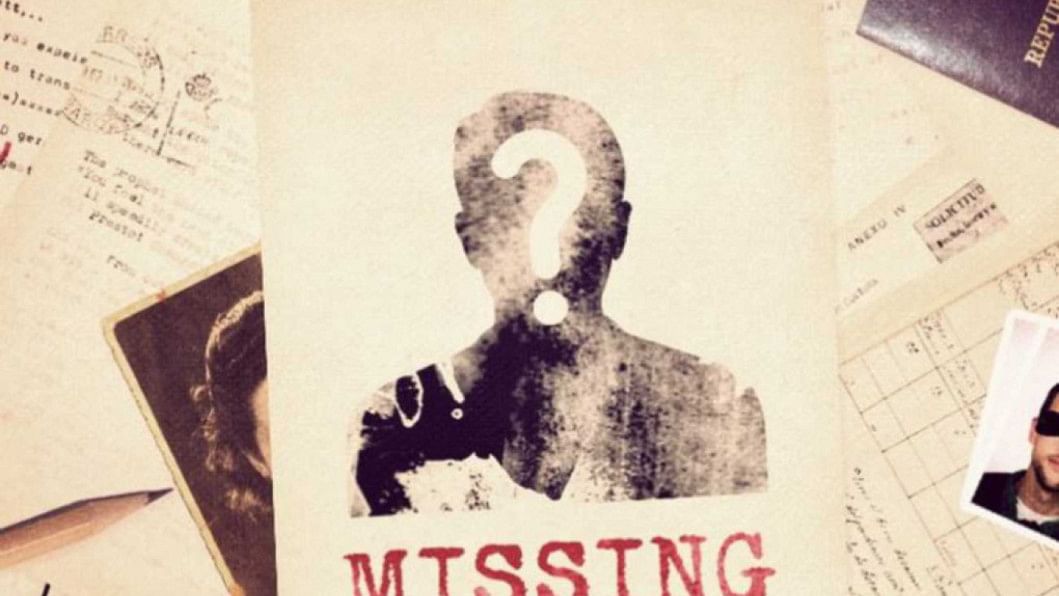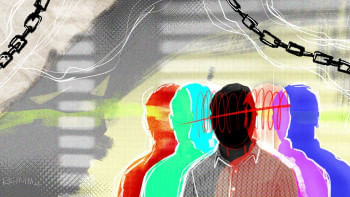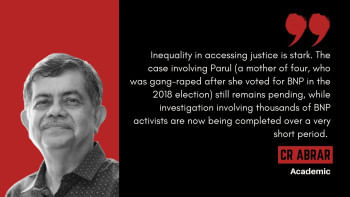Inadequacy in law doesn't justify enforced disappearances

Bangladesh has once again denied any instances of enforced disappearance, despite facing harsh criticism from human rights activists and calls from leading Western democracies to investigate alleged cases at the United Nations Universal Periodic Review (UPR). Dhaka's response echoes the familiar refrain, "The laws of Bangladesh do not include the term 'enforced disappearances'." This issue drew significant attention and criticism during the fourth UPR held in November 2023.
As the state party under review, Bangladesh, in its response to the report of the Working Group on the Universal Periodic Review, said, "There had been ill-motivated tendency for quite some time to label all cases of missing as 'Enforced Disappearances' with a view to maligning the Government of Bangladesh (GoB)." Additionally, the country emphasised that its criminal laws addressed "kidnapping" or "abduction," which apply to all individuals, including law enforcement officials. The UPR report and the government's response are expected to be presented at the ongoing 55th session of the Human Rights Council.
The government's response suggests that the absence of specific domestic legislation serves as a justification for a crime that, according to international conventions, could constitute a crime against humanity. Questions arise regarding how many of the numerous alleged cases of enforced disappearance have been addressed under provisions related to "kidnapping" or "abduction," particularly involving alleged perpetrators, often members of law enforcement agencies (LEAs). Victims' families continue to lament the lack of cooperation from the police, including the refusal to register cases against LEA members. Utilising legal loopholes to deny enforced disappearance practices before the UN human rights forum further diminishes the hopes of justice for victims' families.
Despite calls to ratify the International Convention for the Protection of All Persons from Enforced Disappearance (ICPPED), the government's rationale appears feeble. It contends that ratification would necessitate sustained national efforts to develop a coherent legal framework, build institutional capacity within implementation agencies, and achieve consensus among stakeholders. The government asserts that Bangladesh engages constructively with the Working Group on Enforced and Involuntary Disappearances (WGEID).
It is perplexing that a government with a 15-year tenure has failed to acquire the institutional capacity required to fulfil obligations under an international protocol crucial for safeguarding citizens' rights to life and freedom. This is not the first time the government has resisted calls to ratify the ICPPED, despite rights activists advocating for its accession for over a decade, especially following suspicious disappearances of prominent critics bearing hallmarks of enforced disappearances.
Examining the ICPPED, one can argue that the government's clarification is evasive and intentional, avoiding commitment to abide by the obligations outlined in the treaty for the state parties. In defining enforced disappearance, Article 2 of the ICPPED says, "For the purposes of this Convention, 'enforced disappearance' is considered to be the arrest, detention, abduction or any other form of deprivation of liberty by agents of the State or by persons or groups of persons acting with the authorisation, support or acquiescence of the State, followed by a refusal to acknowledge the deprivation of liberty or by concealment of the fate or whereabouts of the disappeared person, which place such a person outside the protection of the law."
This definition makes it clear that irrespective of whether the alleged abductors or kidnappers are agents of the state, and whether they are authorised by the state, it is the state's responsibility to consider any such abduction or kidnapping as enforced disappearance. Then again, Article 3 demands, "Each State Party shall take appropriate measures to investigate acts defined in article 2 committed by persons or groups of persons acting without the authorization, support or acquiescence of the State and to bring those responsible to justice."
The ICPPED unequivocally states that no exceptional circumstances, including states of war or public emergencies, justify enforced disappearances. Despite government officials dismissing allegations as false and fabricated, there has been little progress in resolving cases highlighted by the UN experts' committee. Its annual report of 2023 published on August 8, covering the period between May 13, 2022 and May 12, 2023, showed that 70 cases out of 81 communicated to the government remained outstanding. Such level of engagement cannot be the answer for the WGEID expert group's request for a country visit, which would have allowed them to interact with victims' families and other civil society representatives.
In response to the UPR's 301 recommendations, the Bangladesh government accepted 201 and noted the remainder with some observations. Given that the ICPPED is the only core human rights instrument Bangladesh has not signed, the government's justifications for not joining the treaty and subjecting itself to the treaty body's scrutiny warrant public scrutiny. Without addressing this issue, ending this cruel and inhumane practice will remain elusive.
Kamal Ahmed is an independent journalist. His X handle is @ahmedka1
Views expressed in this article are the author's own and do not reflect those of any organisation, institution or entity with which he is associated.
Follow The Daily Star Opinion on Facebook for the latest opinions, commentaries and analyses by experts and professionals. To contribute your article or letter to The Daily Star Opinion, see our guidelines for submission.

 For all latest news, follow The Daily Star's Google News channel.
For all latest news, follow The Daily Star's Google News channel. 










Comments